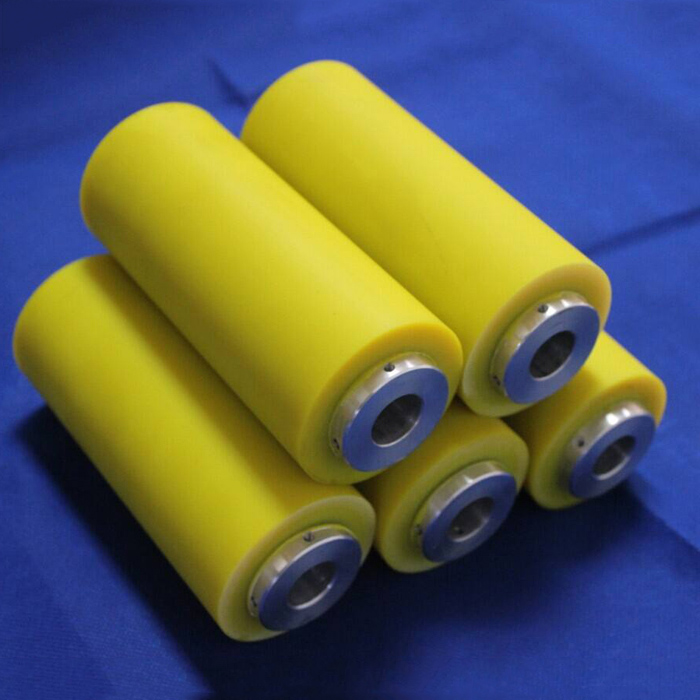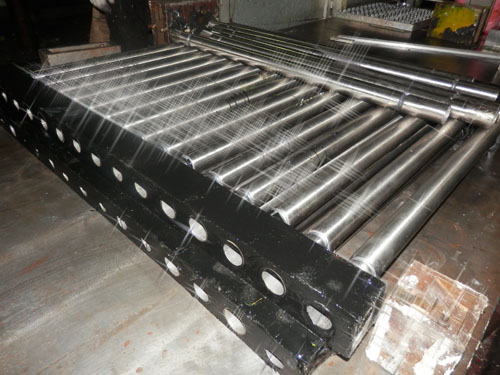Advantages of Polyurethane Rollers
· Polyurethane and rubbers, such as nitrile and neoprene, belong to a family of materials called elastomers. Their elastic properties make them an ideal choice as roller-covering material. Polyurethane rollers have several advantages over ordinary rubber rollers. Their impressive mechanical properties make them more viable than other types. The many benefits of polyurethane rollers include:
· Wide range of physical properties - As mentioned earlier, with its different types and proportions of polyols, diisocyanates, and curatives, polyurethane can have almost any property to suit a particular use. It is a very versatile material that can be engineered with different mechanical properties.
· Better durability - Aside from being versatile, polyurethane’s mechanical properties are also superior to other rubber types. Regardless of its hardness, the toughness and resilience of polyurethane make it a very durable material. While the useful life of rubber rollers is about 1000 hours, polyurethane rollers last four times as long at 4000 hours before they show any signs of wear or aging. Their longevity decreases downtimes and work stoppages for repairs since replacement rollers are seldom needed.
· Approved by the Food and Drug Administration (FDA) - For the protection of the public, the FDA has enacted strict standards regarding the equipment and machines used in food processing. Every step of food production is closely examined for contaminants, bacteria, and cleanliness. · · · · Due to these rigid requirements, polyurethane rollers are used in place of rubber or plastic rollers since polyurethane rollers do not leave marks or residue that could potentially contaminate food.
· Carbon Blacking – Rubber roller linings have carbon black added as a filler and reinforcing material. When rolled against a hard surface with sufficient force, they leave black streaks and marks damaging in applications such as finished goods handling and printing. Polyurethane rollers do not require carbon roller linings as extra support, which avoids the potential of carbon blacking.
· Water and oil resistance – Depending on the type of polymer system used, polyurethane can withstand water, oils, and other petroleum-based solvents. Water resistance is required for rollers under wet service or in environments with frequent washdown. Oil resistance is required for handling hydrocarbon-based solvents or chemicals such as inks.














